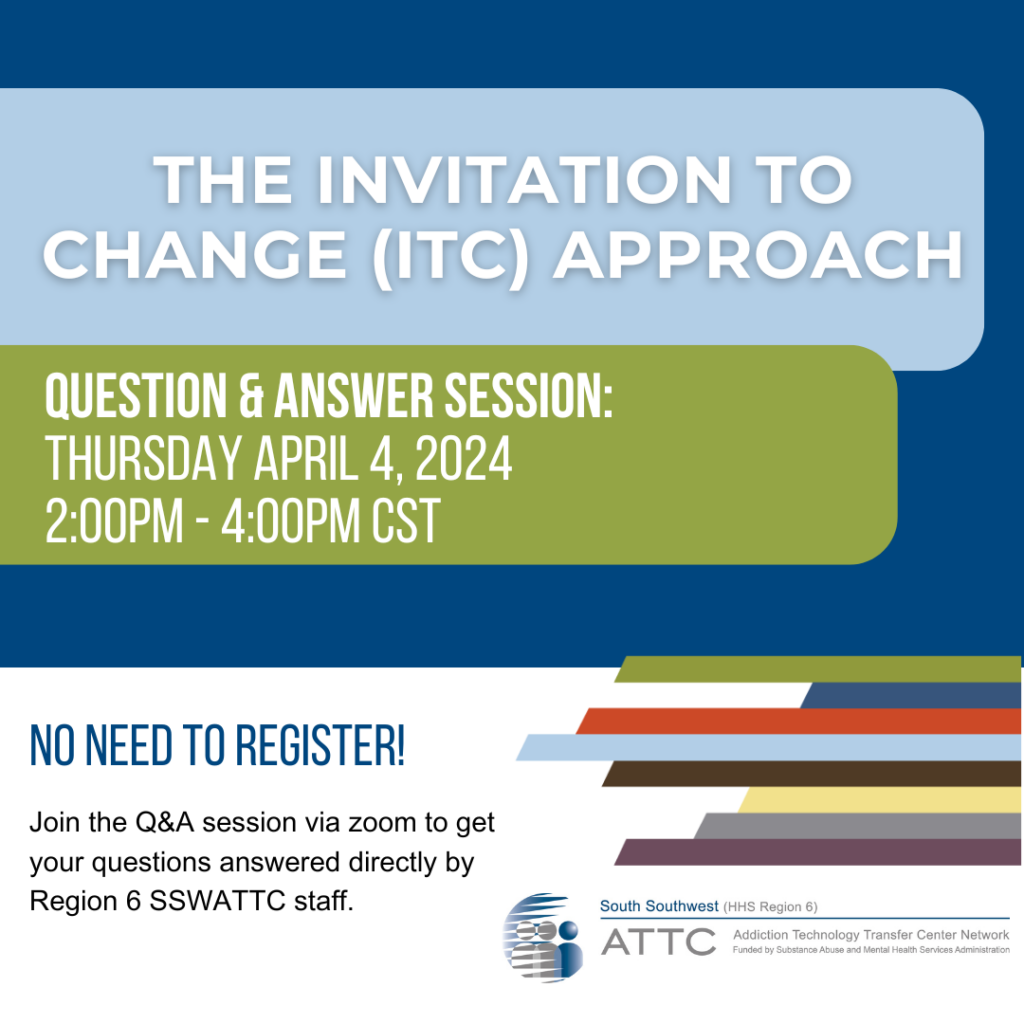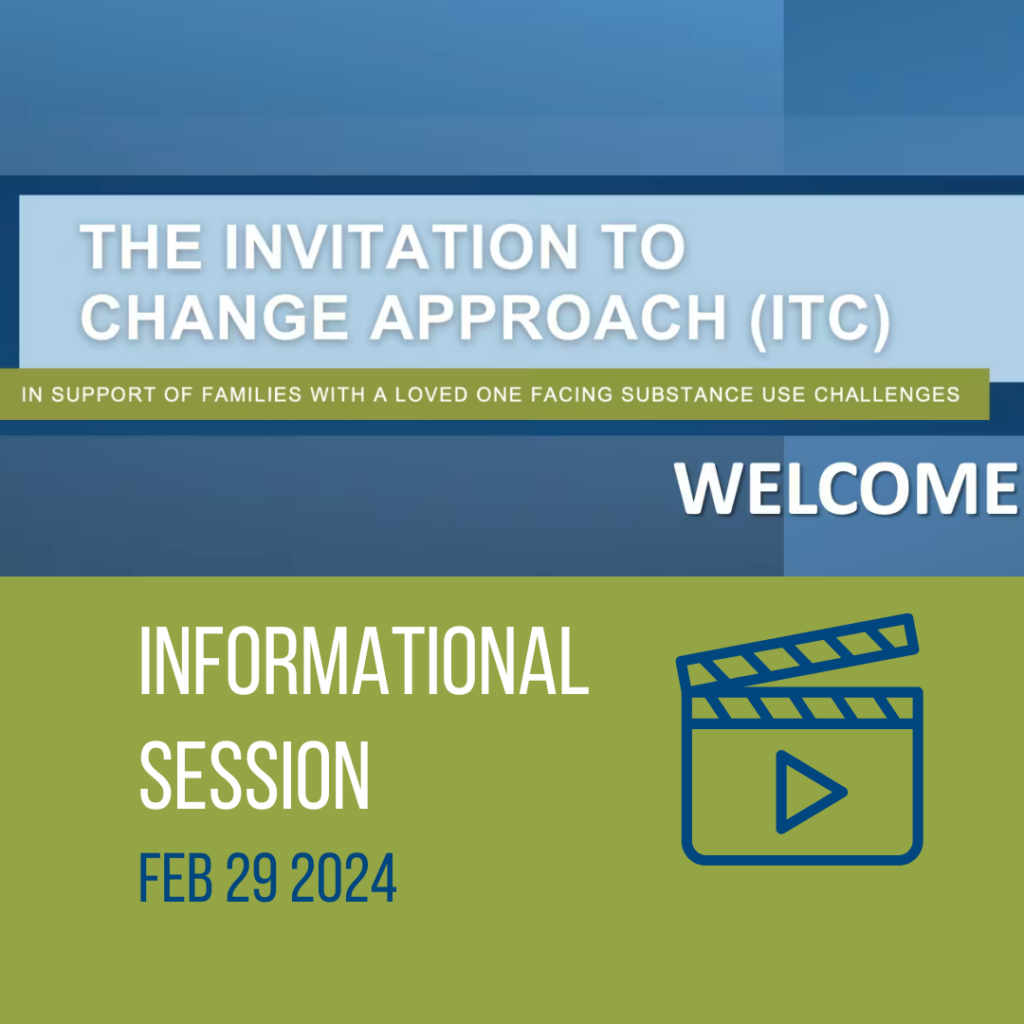This Learning Community is an intensive, collaborative, interactive professional learning opportunity focused on the integration of hepatitis C (HCV) services into office-based opioid treatment (OBOTs) and Opioid Treatment Programs (OTPs). It is based on the Addiction Technology Transfer Center (ATTC) Network’s Your Guide to Integrating HCV Services into Opioid Treatment Programs. HCV services include prevention education, screening, antibody HCV tests, confirmatory RNA HCV testing, and HCV treatment, including referrals to outside treatment providers and onsite treatment. Participating providers will learn how to integrate, expand, and enhance HCV services into their current clinical practices while benefiting from a peer-based learning collaborative structure. The project will be led and facilitated by Scott Luetgenau, MSW, LCAS, CSI, who is an expert in this area. The South Southwest ATTC offered this Learning Community opportunity to all states in Region 6 (Arkansas, Louisiana, Oklahoma, New Mexico, and Texas). Interest was received from Oklahoma providers, and therefore the project is Oklahoma focused.
What are the benefits of participating in this learning community?
Providers who participate in the LC will have the opportunity to:

Participating organizations committed staff member(s) to their learning community core team who serve in the medical, behavioral health, peer and administrative learning positions. Examples of participant roles include:
workflows and has decision-making authority.

Training commitment: (April 12 through August 9, 2024)
Participating organizations have already ben selected for 2024. However, for more information about future opportunities about the Learning Community, please contact Mary S. Cook at [email protected].

For community organizations interested in implementing the ITC model, please apply to receive ITC facilitation training and support to host ITC Recovery Support Groups as outlined below.
PART 1: Community Organization's Training Commitment: (July-September 2024)
PART 2: Community Organization's Support Group Implementation Commitment: (October 2024-August 2025)

The Invitation to Change is a holistic helping model for families affected by substance use, drawing from concepts also found in CRAFT, MI, and ACT. Participants will leave the training with a complete set of tools for working with families. More about the approach here.

This training offers participants a helping blueprint for working with families. Over the course of the workshop training participants will learn the foundational principles and skills entailed in the Invitation to Change approach and introduced to exercises to help families understand and utilize them to support their struggling loved one. The ITC is designed to be taught to and implemented by those in supportive roles (i.e. family members; significant others) —it takes complicated psychological principles and makes them understandable for families in crisis. The workshop introduces the ITC concepts and skills in a similar way we expect participants to teach their clients.

Each applicant organization or community group will select 3 individuals (2 individuals to co-facilitate the support group and 1 individual to provide project oversight and support) to participate in both Level 1 and Level 2 of the ITC Approach training.
This training will take place over Zoom.
(17 hours)
Will teach participants the fundamentals of the ITC.
(12 hours)
Will teach participants how to utilize the ITC in individual and group settings using the Group Curriculum.
Attendance Requirements: The availability of spots is limited. Full commitment is expected of participants for all seven training sessions.
There is no cost associated with this training. However, the team of participants are expected to implement an ITC support group in their local community (virtual or in-person).
Part 1 of the Invitation to Change Training is eligible for Continuing Education Credits.
We do not provide partial CE credits. Attendees are required to attend the entire training. For Zoom trainings we will track attendance by downloading the Zoom reports, so please ensure that your display name is your full name so we can properly mark your attendance. If you are going to share a computer with another participant you are REQUIRED to inform CMC:FFC staff prior to the training.
| NASW National Association of Social Workers | This program is Approved by the National Association of Social Workers (Approval #886779708-2078) for 14 continuing education contact hours. |
| NYSED New York State Education Department | CMC:Foundation for Change is recognized by the NYSED State Board for Social Work as an approved provider of continuing education for Licensed Social Workers #SW-0581. This program is approved for 14 continuing education contact hours |
| NAADAC The Association of Addiction Professionals | CMC:Foundation for Change is approved by NAADAC to provide 14 Credit Hours. Provider approval number 272939. NAADAC CE Approvals by State: View Here |
If you are unsure if one of these three approvals will cover your specific licensure, please contact your board directly to clarify.
After selected applicants complete the Part 1: Training Commitment during July 2024- September 2024, Part 2 will entail the facilitation of the one 15-week Support Group for families of loved ones facing substance use challenges between October 2024-August 2025.

Selected applicants are also expected to collaborate with Regional ATTC and CMC: Foundation to receive technical assistance and support as needed during implementation and facilitation of the ITC support group. (Estimated time commitment: 25 hours)


For more information, contact Kelly Pierrend, South Southwest ATTC: [email protected]
This event is jointly sponsored by the Great Lakes ATTC (HHS Region 5), South Southwest ATTC (HHS Region 6), Mountain Plains ATTC (HHS Region 8), Northwest ATTC (HHS region 10), Southeast ATTC (Region 4) and Mid-America ATTC (Region 7) and the ATTC Network Coordinating Office.

The Invitation to Change model was developed by CMC: Foundation for Change and focuses on building communication skills, improving family relationships and self-care for families. Support groups can be facilitated by paid or volunteer community members, peer support specialists or clinicians. The Invitation to Change model and strategies are drawn from three evidence-based approaches—Community Reinforcement Approach and Family Training (CRAFT), Motivational Interviewing (MI) and Acceptance and Commitment Therapy (ACT).
This is a joint project with the Great Lakes ATTC at University of Wisconsin, Northwest ATTC at University of Washington, Mountain Plains ATTC at University of North Dakota and University of Nevada Reno, Southeast ATTC at Morehouse School of Medicine, Mid America ATTC and the ATTC Network Coordinating Office at University of Missouri Kansas City.
South Southwest ATTC is engaged in a multi-year collaborative effort to provide family members of people with substance use challenges access to evidence informed, responsive and culturally appropriate resources. Our efforts began in 2022 in response to needs identified in the South Southwest ATTC’s service region – HHS Region 6, which includes Arkansas, Louisiana, New Mexico, Oklahoma and Texas.
In 2022-2023, South Southwest ATTC partnered with the National Hispanic and Latino Addiction Technology Transfer Center, The African American Behavioral Health Center of Excellence and local community representatives to conduct a review of existing resources for family members. In addition, we hosted consultations directly with family members and loved ones of people who use substances about their experiences and needs.
The resulting report from the consultation indicated that family members are available and steadfast supporters of their loved ones.
They are actively working to find treatment and recovery supports for family members facing substance use challenges. They are strengthened by extended family networks and faith communities, but they also experience significant isolation and shame, and frequently struggle to find effective resources.
To expand resources and support for families, South Southwest ATTC is partnering with other regional ATTCs to establish and nurture the growth ITC Family Support groups in our region.
On February 29, 2024 the South Southwest ATTC and their partners hosted The Invitation to Change Approach Informational Session for over 90 attendees.
The session began with an introduction to the audience to the ATTC Network, an international, multidisciplinary resource for professionals in the addiction’s treatment and recovery services field by Jeanne Pulvermacher, Great Lakes ATTC.
Then, Meg Murray, Executive Director of CMC Foundation for Change gave a brief overview the framework based on science and kindness, designed for families and the professionals who support them, known as the ITC model. She explained the importance of family support for someone facing substance use challenges. As well as understanding how shame can impact the individual, their family, and their journey.
Kris Kelly of the Great Lakes ATTC wrapped up the Informational Session, by explaining the ATTC Sponsorship opportunities for community organizations. Organizations interested in implementing the ITC model can apply to receive ITC Facilitation training and support to host ITC Recovery Support Groups as outlined below.
Training Commitment: (July-September 2024)
Support Group Implementation Commitment: (October 2024-August 2025)
Estimated time commitment: 60 hours
Estimated time commitment: 25 hours
Click the image to watch the full recording of Informational Session from 2/29/24.
For those interested who work and/or reside in SAMHSA Region 6 states Arkansas, Louisiana, New Mexico, Oklahoma, and Texas, can contact Kelly Pierrend at [email protected].
APPLICATIONS ARE NOW OPEN!
How to Apply: Fill out and submit this google form.
To learn more about training dates and organizational commitments, please see the new webpage. Deadline to apply is April 19, 2024.
All selections will be made by May 1, 2024.